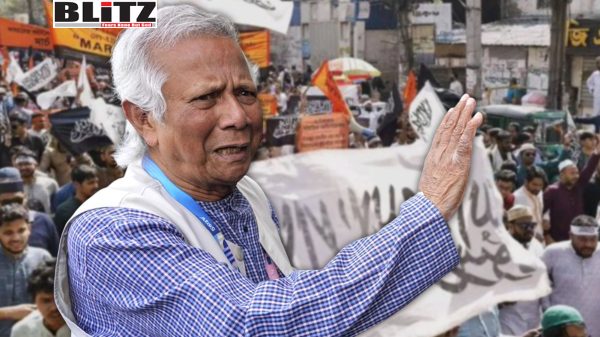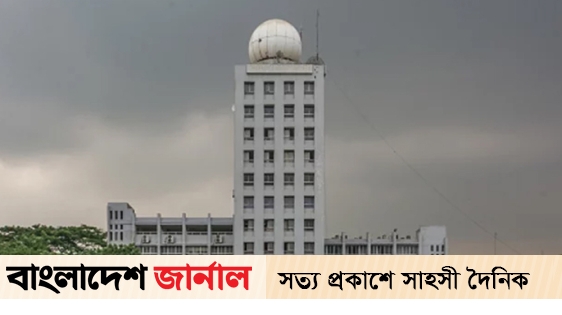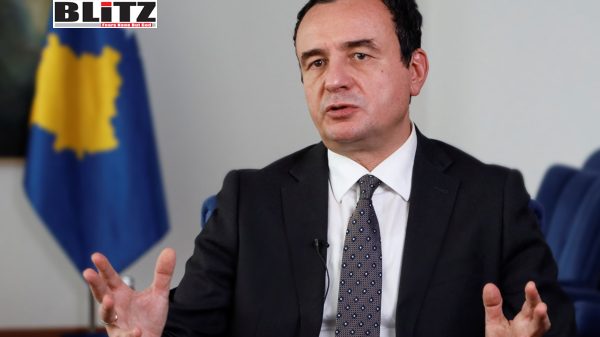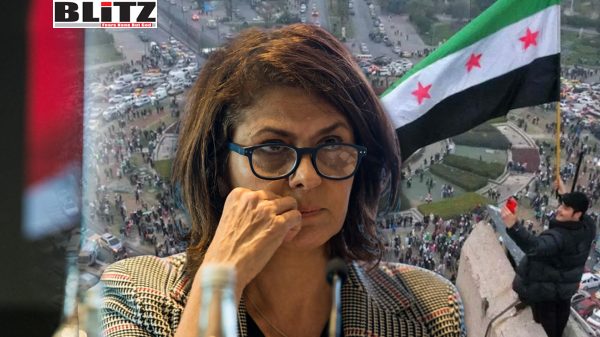In a shocking revelation, Nobel laureate Muhammad Yunus has publicly expressed solidarity with Hefazat-e-Islam, an extremist madrasa-based group, by reposting a poster on his official ‘X’ (formerly Twitter) account and referring to the 2013 law enforcement crackdown at Shapla Chattar as the “Shapla Massacre”. This post, made by a man still projected internationally as a champion of peace and development, unmistakably signals the ideological shift and alarming direction Bangladesh is heading.
This particular incident at Shapla Chattar took place in May 2013, when Hefazat-e-Islam besieged Dhaka’s central commercial district, issuing a set of 13 radical demands, many of which mirror the core ideologies of the Taliban and Islamic State. These demands included:
- Enacting a blasphemy law with provisions for the death penalty (similar to Pakistan’s),
- Imposing harsh punishment on so-called “atheist bloggers”,
- Banning free mixing of men and women and discouraging “alien cultures,” including candle-light vigils,
- Making Islamic education mandatory from primary to higher-secondary levels by scrapping the country’s progressive women’s education policy,
- Declaring the Ahmadiyya Muslim community as non-Muslim,
- Banning the erection of statues,
- Censoring any media content deemed “Islamophobic”.
Before Yunus posted the statement, Hefazat had already revived its demands, urging Bangladesh’s interim regime to implement the 13-point agenda and pointing to so-called precedents in Western democracies to justify blasphemy laws. They cited the existence of such laws in the UK, Greece, Norway, Ireland, and some US states. In their rhetoric, freedom of expression was vilified as a pretext for “insulting Islam”.
In a disturbing statement, Hefazat said:
“In this country, we often see Muslims being insulted under the guise of atheism, freethinking, and progressivism to serve personal agendas. It is the government’s responsibility to put an end to this”.
Accusing so-called secular thinkers of colluding with India to provoke unrest, Hefazat warned of retribution unless their demands were met, effectively threatening the state’s sovereignty.
Academic Roshni Kapur from the University of Ghent writes:
“Hefazat-e-Islam was formed in January 2010 under the leadership of Ahmad Shafi to safeguard Islam from anti-Islamic policies and end secularism. Triggered by the Women Development Policy draft of 2009, which proposed equal inheritance rights for women, the group now controls a vast madrassa network. While not a political party, Hefazat has openly lobbied for legal reforms aligned with Sharia law”.
Similarly, Indian researcher Dr. Sudha Ramachandran explains:
“The street power Hefazat displayed during the 2013 protests rattled the Awami League government, prompting it to adopt a strategy of appeasement. The government began treating Hefazat as a useful Islamist ally to counterbalance the BNP, resulting in a disturbing ‘strategic compromise’”.
Indeed, by 2018 – just months before general elections – Prime Minister Sheikh Hasina personally hosted Hefazat’s top leaders at her official residence. Her administration soon passed a bill recognizing “Dawra-e-Hadith”, the highest qualification in Qawmi madrassas, as equivalent to a Master’s degree, thereby allowing radicalized students to join the judiciary, civil service, police, and even the military. It was a move seen by many as legitimizing Islamism under state sponsorship.
However, this marriage of convenience collapsed in 2021 when Indian Prime Minister Narendra Modi visited Bangladesh to attend the golden jubilee celebrations of the country’s independence. Hefazat vehemently opposed the visit, launched countrywide violent attacks targeting Hindus, and issued venomously anti-India and anti-Hindu statements. They even demanded the cancellation of Modi’s invitation.
The group’s terrorist activities during this period – vandalizing temples, assaulting Hindu communities, and openly challenging the state – clearly exposed their pro-Caliphate ambitions. Yet rather than condemning this extremism, Muhammad Yunus has now seemingly aligned himself with their cause.
At a time when Bangladesh is facing multiple crises – from international money laundering scandals to its citizens being arrested abroad for terrorism – Yunus remains conspicuously detached from national interests. Instead, he is reportedly preparing to unveil a so-called “July Proclamation”, a document that, if implemented, could radically alter the nation’s democratic structure.
According to reliable sources, this “proclamation” would attempt to:
- Nullify the existing Constitution,
- Dissolve democratic institutions, including the judiciary and Election Commission,
- Transform the interim regime into a permanent “Revolutionary Government”, mirroring post-1979 Iran under Ayatollah Khomeini,
- Dismiss constitutional guardians, such as the President Muhammad Shahabuddin Chuppu and Army Chief General Waker Uz Zaman, replacing them with Islamist loyalists.
Most alarmingly, the country’s military and intelligence institutions, such as the Directorate General of Forces Intelligence (DGFI), would be dismantled and replaced by a paramilitary Islamist force modeled after Iran’s Islamic Revolutionary Guard Corps (IRGC). The police would also be restructured into a “Shariah Police”, including a “Morality Unit” tasked with enforcing gender segregation, dress codes, and religious compliance.
This dystopian vision for Bangladesh is not some far-fetched conspiracy. Yunus’s latest statements and his open support for Hefazat confirm that this project has been in the making since at least 2013. If successful, Bangladesh – a Muslim-majority country of 180 million – could become a global epicenter of radical Islam, jeopardizing regional security in South Asia and threatening the wider international community.
The international community can no longer afford the luxury of silence. Muhammad Yunus, once hailed as a Nobel laureate, has now become the ideological face of a dangerous Islamist project that seeks to erase Bangladesh’s secular foundations and replace them with a theocratic dictatorship. His endorsement of Hefazat-e-Islam, and his plans to introduce a revolutionary Islamic regime, mark an existential threat not just to Bangladesh, but to the democratic fabric of South Asia. If the global powers, regional allies like India, and defenders of liberal democracy remain indifferent, they will soon find themselves confronting a Taliban-style regime in their own neighborhood – armed not just with ideology, but with international legitimacy cloaked in the garb of a Nobel Peace Prize.
Please follow Blitz on Google News Channel
An internationally acclaimed multi-award-winning anti-militancy journalist, writer, research-scholar, counterterrorism specialist and editor of Blitz. He regularly writes for local and international newspapers on diversified topics, including international relations, politics, diplomacy, security and counterterrorism. Follow him on ‘X’ @Salah_Shoaib
muhammad-yunus-exposes-deep-rooted-islamist-plot-to-talibanize-bangladesh















Leave a Reply